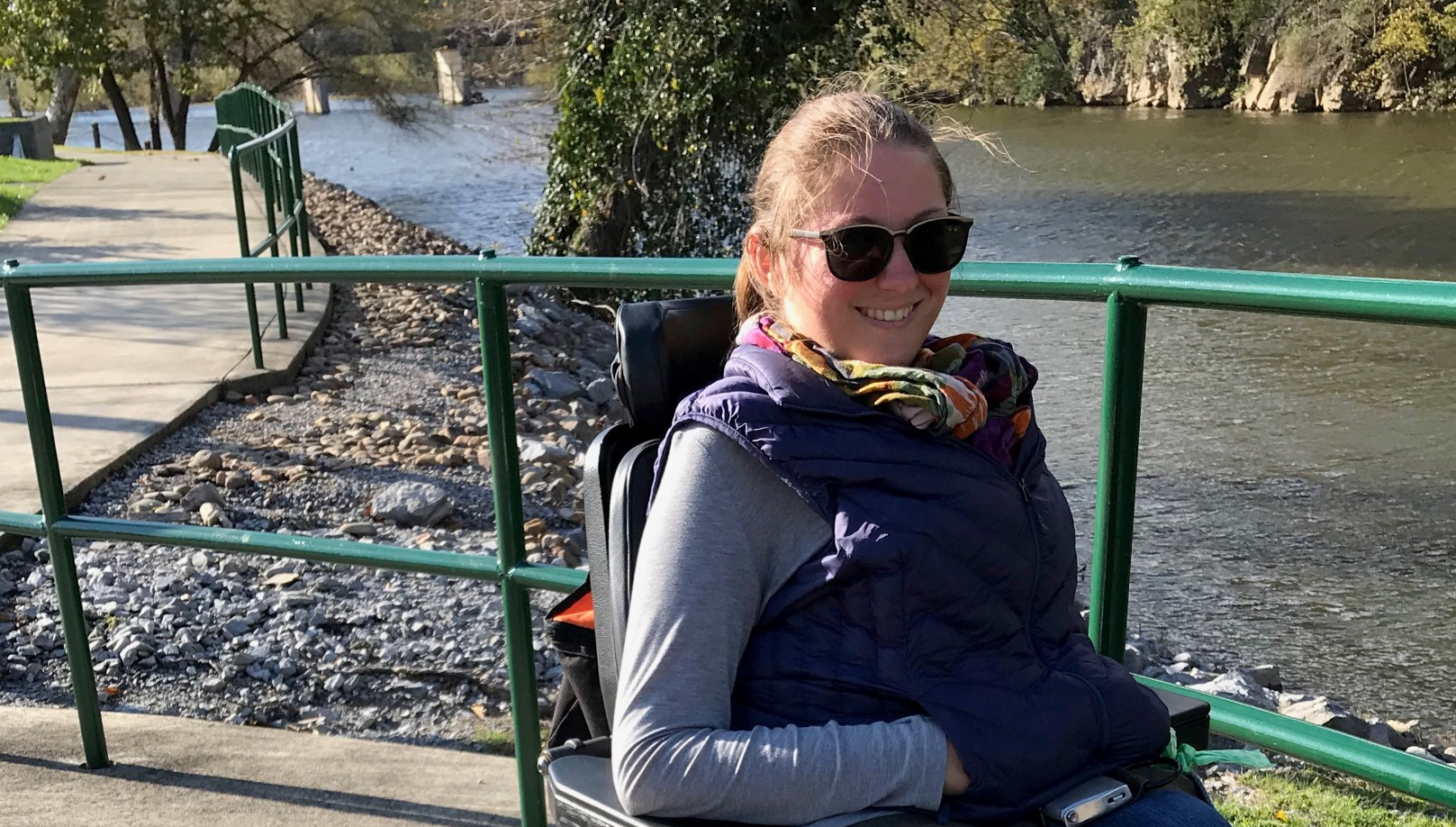
Sarah Boggess, a research associate and lab manager in the Trigiano Lab at the University of Tennessee Institute of Agriculture, focuses on plant genomics, particularly in species like flowering dogwoods and eastern redbuds. Beyond the lab, Boggess is dedicated to promoting inclusion within the scientific community, striving to create a more equitable environment for all scientists.
Q&A with Sarah Boggess
Can you tell us a little bit about yourself?
I grew up in rural East Tennessee. I attended UT to obtain my BS in plant science and MS in entomology and plant pathology (plant pathology concentration). Since working at the university, I have joined the EPP committees for Diversity and Inclusion and Social events, as well as professional organizations diversity & inclusion and accessibility committees. This position allows me to combine my passions for teaching/working with students, disability advocacy, and scientific research.
Who are the team of faculty you work with?
I work with Bob Trigiano. Our lab collaborates frequently with many other groups in EPP and beyond including but not limited to, Dewayne Shoemaker, Meg Staton, Denita Hadziabdic, Marcin Nowicki, Jim Brosnan, and Bill Klingeman.
What are the primary research areas performed by you in the lab?
We participate in a range of research areas. Primarily, we do genomics focusing on flowering dogwood, eastern redbuds, and a few endangered species.
How did you get into your career field?
I always enjoyed science and learning about plants. When I was an undergraduate student, I joined Bob Trigiano’s lab and learned that I love scientific research. Research is like a puzzle, constantly trying to figure out what goes together, getting to try new things, and constantly changing. I love that.
What is your favorite procedure to do in the lab?
My favorite procedure is not really a lab procedure. I genuinely love creating and formatting presentations and posters. For me, there is something rewarding about taking a poster or a presentation and composing new ideas on how to best present our research.
What is the best part of your job?
Working with the students and being a part of their journey. If I can have a positive effect on one student during their journey into a scientific career, I think my job is successful.
What do you consider to be one of your greatest achievements? Why?
Being part of the scientific community. As someone who identifies as disabled and uses a wheelchair to get around, breaking into the scientific field is unusual. I have Spinal Muscular Atrophy, so I have used a wheelchair for as long as I can remember. People tend to put people with a disability into a box of what they can do, but, anything is still possible, if you find the right people to support you, and if you think outside the box.
If someone wanted to get to where you are now, do you have any advice for them?
Stick to your goals and remember that it is okay for them to change. Take risks and try new things. I believe that things happen for a reason. You never know what you are going to end up falling in love doing. Another piece of advice I would give is to network with others. Asking others about their research is always a great way to open a conversation. The scientific field, and more specifically plant pathology and entomology is a small world. You never know who you are talking to or what it might lead to in your future.
What are two of your favorite hobbies?
Adaptive sports! I currently play PowerSoccer with a local group. I frequently participate in adaptive water skiing, kayaking, and mountain biking programs. I also enjoy traveling and hiking. I find joy in finding adaptive, or semi-adaptive trails to explore. My favorite trail so far is probably in South Carolina – Edisto beach state park has 4 miles of accessible trail system through the marshes. Locally my favorite would be Seven Islands Birding Park, many of the trails there are grass or pavement so I am able to hike them without too much issue.